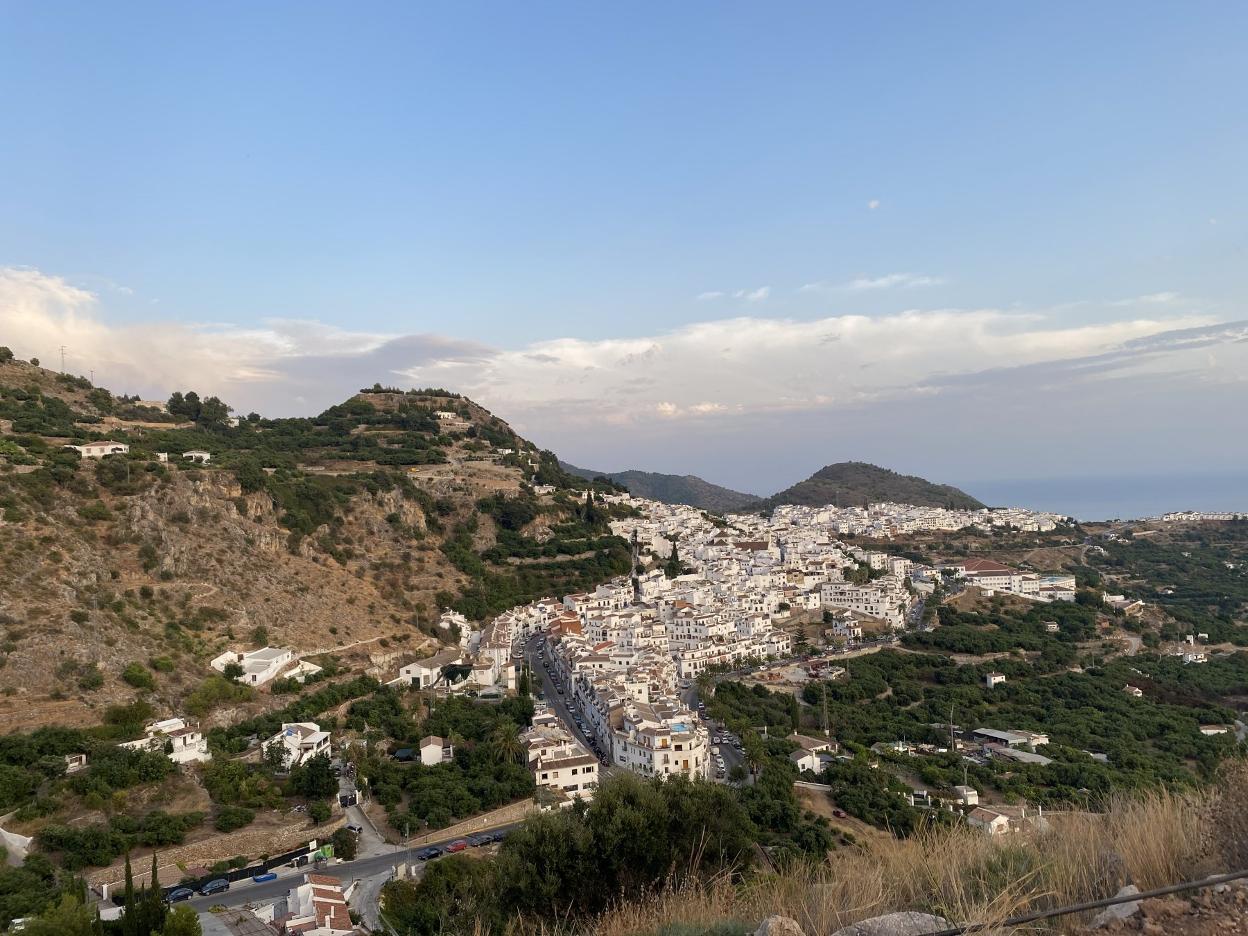Landowner or water source
FRIGILIANA ·
The most accepted theory is that the village gets its name from 'Frexinius' who is thought to have owned the land during Roman timesE. Cabezas / Jennie Rhodes
Friday, 13 January 2023, 13:15
Frigiliana is one of Malaga province's best-known villages and is eternally popular with tourists.
With its whitewashed houses adorned with colourful flowerpots straddling winding cobbled streets, the Axarquía village has been voted one of Spain's prettiest villages on numerous occasions.
But what is the origin of the name Frigiliana? Local historian Pablo Rojo, author of several books on the history of both Frigiliana and neighbouring Nerja, points out that there are several theories about the origin of the place name.
However, he explains, "The only one corroborated or put forward by the academic world, by Chavarría Vargas, is that of a possible Latin origin and could refer to 'Frexinius', who is thought to have been the owner of the lands that Frigiliana now sits on, before the arrival of the Muslims to Spain in the eighth century."
Another Axarquía historian, Purificación Ruiz, points to the possibility that the name is "a reference to a source of water that could have supplied the town, given that the suffix '-ana' could derive from 'aina', which means 'source' in Arabic.
"We believe, however, that this suffix marks the Latin origin of the word," explains Rojo, who details that there are documents dating from the 15th century about Frigiliana, referring to it as 'Fixiliana', 'Fixiniana' or 'Fregiliana'.
The researcher explains that there have been other more distant words from the name we know today, but always with the suffix '-ana', which supports his theory that the name is of Latin origin, which also uses 'ana' as a suffix.
In any case, according to Rojo, "the truth is that, despite the theories, very few place names are preserved within Frigiliana that can be traced back to the Muslim period, or even earlier, since the inhabitants from that period abandoned the village between 1507 and 1508, after the Reconquista when Muslims who stayed in Spain were forced to convert to Christianity."
This, he says, was "despite a promise to respect the customs and ways of life of those Andalusian Muslims" made by the Catholic Monarchs Isabella and Ferdinand in the capitulation of Granada in 1491.
As such, the historian argues that the Muslim inhabitants did not pass on information about the place names in the village to the new settlers who arrived at the beginning of the 16th century.
Another curiosity about Frigiliana's origins is that until the beginning of the 20th century, the river that flows through the village and is now known as the Higuerón, was known as the Alconcar.
According to Rojo, it is noteworthy that the word 'Alconcar', which he says is of Latin origin, survived.
Rojo explains that 'conca' means 'basin' in Latin and is very different from the Arabic word 'ofra'. The name was preserved in an old farmhouse located by the river.
Be the origin of Frigiliana's name Latin or Arabic, or indeed a fusion of both, the village today is famous for celebrating the three cultures that have shaped its history and people: Christian, Muslim and Jewish.
The annual Three Cultures Festival, which takes place at the end of August every year and the three cultures sculpture that can be found on Plaza de las Tres Culturas, are wonderful reminders of the area's rich history.
